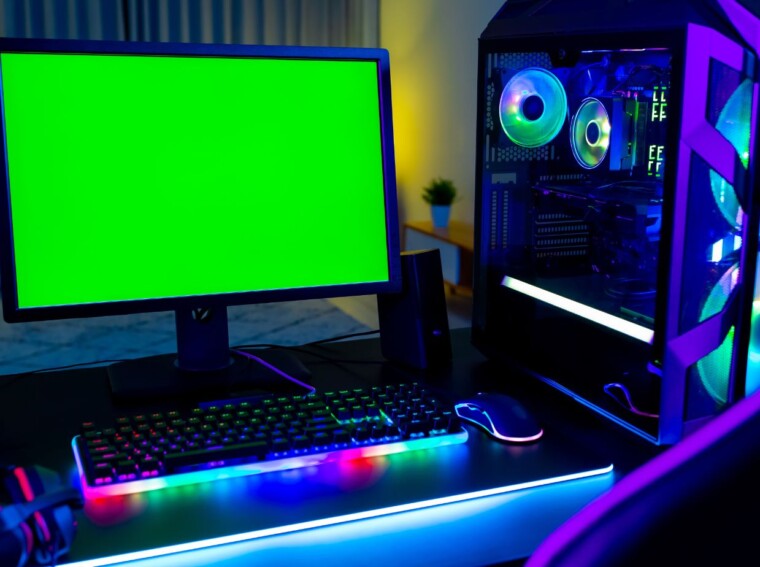If you’re interested in PC gaming, you might be motivated to replace your computer with one designed for gaming purposes. But do you really need a computer that’s dedicated to the purpose of playing video games? And if not, what requirements will you need to meet to play the games you want?
What Makes a Computer a “Gaming Computer?”
A gaming laptop or gaming desktop is a machine that supposedly specializes in allowing users to run and play video games as optimally as possible. There are several components that make this possible, though the specifics are going to vary from machine to machine.
These are some of the most important hardware and software components:
· CPU. The CPU, or central processing unit, is the functional center of a computer. It processes and executes instructions and is necessary for many different kinds of computational tasks. It’s important for gaming – but perhaps not as important as other components. Gaming PCs have bigger, more advanced CPUs to enable faster processing.
· GPU. The GPU, or graphics processing unit, shares some similarities with the CPU, but instead of being good at a number of tasks, the GPU is exceptionally good at very specific types of tasks. Most notably, it excels at processing graphics and rendering videos – which is perfect for gaming. Many “normal” computers don’t even have a GPU, while gaming PCs have GPUs from the latest generation.
· RAM. RAM, or Random Access Memory, functions as a temporary storage cache for information. With 4 GB of RAM, you could accomplish most day-to-day tasks on a computer. But many modern games recommend a minimum of 16 GB (or even higher).
· Hard drive. The nature of your hard drive determines how quickly your games can load, while the size of your hard drive determines how many games you can store. Most gaming PCs now come with faster SSD drives by default, though there are a range of storage options available.
· Ports. Ports enable you to plug peripherals and accessories into your computer. Nearly all computers have a versatile range of ports available, but gaming computers tend to have more ports designed for gaming peripherals.

· Cooling systems. Gaming PCs tend to run hotter than their traditional counterparts, so sometimes, they come with more advanced cooling systems, including fans and/or liquid systems.
· Built-in software. If you buy a prebuilt gaming computer, it may also come with preinstalled software to help you fine-tune your gaming settings.
You can find many of these advanced hardware and software components even in computers that aren’t specifically designed for gaming.
In addition to those components, some gaming computers have extra features to appeal to gamers like:
· Lights. Colorful LED lights are popular in the gaming community, so many gaming computers have them built into the design.
· Sleek designs. Gaming computers are also sometimes designed by artists to look sleek and modern, increasing their appeal to younger demographics.
· Customizations. Because gamers typically have more specific needs in mind than the average computer buyer, there may be more customization options available with a gaming computer.
Can a Regular Computer Run Games?
With all that in mind, can a regular old computer run games?
The short answer is yes. However, there may be some severe limitations to what your computer can do. If you look at system requirements for various games, you’ll see that some can be run on very antiquated machines, while others require state-of-the-art technology to perform optimally. If you don’t have a dedicated gaming computer or at least a computer that’s been upgraded to handle games, you may be limited in what types of games you can play, or you may be forced to run them at lower settings to ensure smooth performance. Consider selling your old laptop for cash to invest in a new gaming laptop that can meet the demands of modern games.
What’s the bottom line? Do you really need a dedicated gaming computer?
That depends on several variables, including.
· Level of dedication. If you’re only a casual gamer, it’s not strictly necessary to buy a dedicated gaming computer. In fact, you may not want to if you’re not convinced you want games to be a primary hobby.
· Types of games. You also must consider what types of games you want to play. Older games and games with minimal demands can run on simple computers that are more than a decade old. Fast, resource-heavy games and newer games have much stricter technical requirements.

· Performance needs. Most PC games allow you to tinker with the settings to improve performance. For example, you may be able to reduce graphical settings or turn down the frame rate to make sure the game can play smoothly on a somewhat obsolete computer. If you’re okay with making some of these sacrifices, you may not need a dedicated gaming computer. However, if you want to play the best games at the best settings, a gaming computer is practically necessary.
· Budget. Finally, you’ll need to think about your budget. Whether you buy a computer designated for “gaming” or not, the technological components necessary to play modern games are somewhat more expensive than the absolute basics. That said, both traditional and gaming computers can be relatively inexpensive. For $700 or less, you can get a decent gaming rig capable of playing most modern games with no issues.
In some ways, the “gaming” designation is superficial. Most games require a certain minimum level of technology, and if your computer meets or exceeds a level for a given game, you’ll be able to play that game optimally. That said, gaming computers are designed with gaming in mind and typically have all the components necessary to play a wide range of games at the highest settings.

